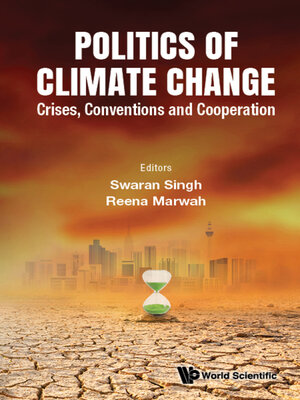
Sign up to save your library
With an OverDrive account, you can save your favorite libraries for at-a-glance information about availability. Find out more about OverDrive accounts.
Find this title in Libby, the library reading app by OverDrive.



Search for a digital library with this title
Title found at these libraries:
| Library Name | Distance |
|---|---|
| Loading... |
The year 2020 was a watershed event in the history of climate change politics. It marked the end of the second commitment period of the Kyoto Protocol and the beginning of the ambitious Paris Agreement. It was also the year of the pandemic, where the disruption caused severe implications on a global scale. The pandemic also brought before the world the severity and scale of the transboundary challenges in a globally interconnected world. It exposed the weaknesses of the global institutions and governance structures in tackling the complex and imminent threat of climate change.As states prepare for the future of global climate change negotiations post the COP26 event of 2021, there has been a significant shift in the politics of climate change at all levels. The negotiations took place in the shadows of the pandemic, which has challenged the political lethargy and non-committal attitudes of states on the climate change question.Unlike in the past, climate change is now a hot issue on the political high tables. It has also spilled outside these negotiating spaces and into the public sphere. Whether it is the school strikes led by children or the indigenous struggles of marginalized populations, the politics of climate change today is far more diverse, representative, and active. At the same time, we can witness the shifts in the state's understanding of the problem, which is actively inquiring about its security and geopolitical dimensions. The boundaries between traditional and non-traditional threats to security are getting blurred as climate change, and its myriad impacts wreak havoc on ecosystem resilience, the state's welfare capacity, and people's everyday lives.Hence, this volume seeks to decipher the nature of global climate change politics in the post-pandemic and climate insecure world. Who will be its main actors, main stakeholders, and losers? How will questions of equity, sustainability, and finance interplay at the COP26 event and thereafter? How will developing and poor countries engage with the issue in the next phase of climate politics? Finally, how will the ambition of the Paris Agreement, which is reflected in the language of net-zero targets and the two degrees Celsius temperature goals, be brought into action?







